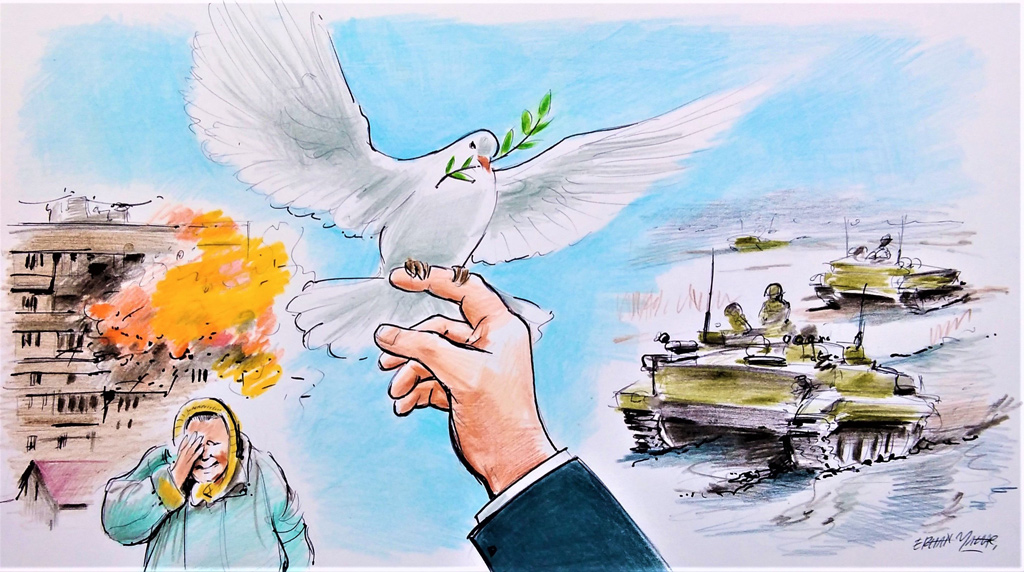Turkey has been engaging in shuttle diplomacy to end the Russian occupation of Ukraine. Between Feb. 24 and March 17, President Recep Tayyip Erdoğan built on his prewar reconciliation efforts by speaking with 35 foreign leaders on 38 occasions. During the Ukraine war, Ankara implemented an idiosyncratic policy, which deserves attention, thanks to the Turkish leader’s insistence on leader-to-leader diplomacy.
Needless to say, Turkey has a strong relationship with both parties – which enables them to trust Ankara. Russia and Ukraine, not to mention the international community, welcomed the Turkish decision not to let warships pass through the Turkish Straits. The Turkish government has also condemned the Russian occupation and endorsed Ukraine’s independence and territorial integrity. Indeed, Ukrainian officials have been quite grateful for Ankara’s humanitarian, political, diplomatic and other kinds of support. By extension, they want Turkey to serve as a guarantor alongside the United Nations Security Council’s permanent members and Germany. Meanwhile, Turkey, which did not impose sanctions on Russia, strives to get results through strong diplomatic engagement with Moscow.
Turkey’s diplomatic activity, which acknowledges the entitled rights of the parties whilst also looking out for multiple sides, makes it more likely to mediate peace talks. Even though Moscow seems to prefer Israel, Kyiv views Ankara as a potential mediator as well as a postwar guarantor. Overwhelmed by harsh economic sanctions, the Russians might want to get results through diplomacy over the next weeks. After all, there is a growing sense that a new Cold War has started between the West and Russia. U.S. President Joe Biden has already called Russian President Vladimir Putin a “war criminal” and signed off on an $800 million arms package for Ukraine.
Again, the U.S. president warned his Chinese counterpart, Xi Jinping, not to provide assistance to Russia. At this point, diplomacy alone would give Putin an exit, without him losing face – which he desperately needs. The way things stand, the status of Crimea and the Donbass region remains the most critical issue at the negotiation table. If the Russian president opts to prolong the war, as the Soviet Union did in Afghanistan, he would enable the West to implement a decisive containment policy to end Russia’s great power status.

Erdoğan's diplomacy makes a difference in Ukraine crisis
Since the first instances of the eruption of the Russia-Ukraine crisis, President Erdoğan has sought common ground and balance for both sides, which only aims to further peace
Share
Tags »
Related Articles







